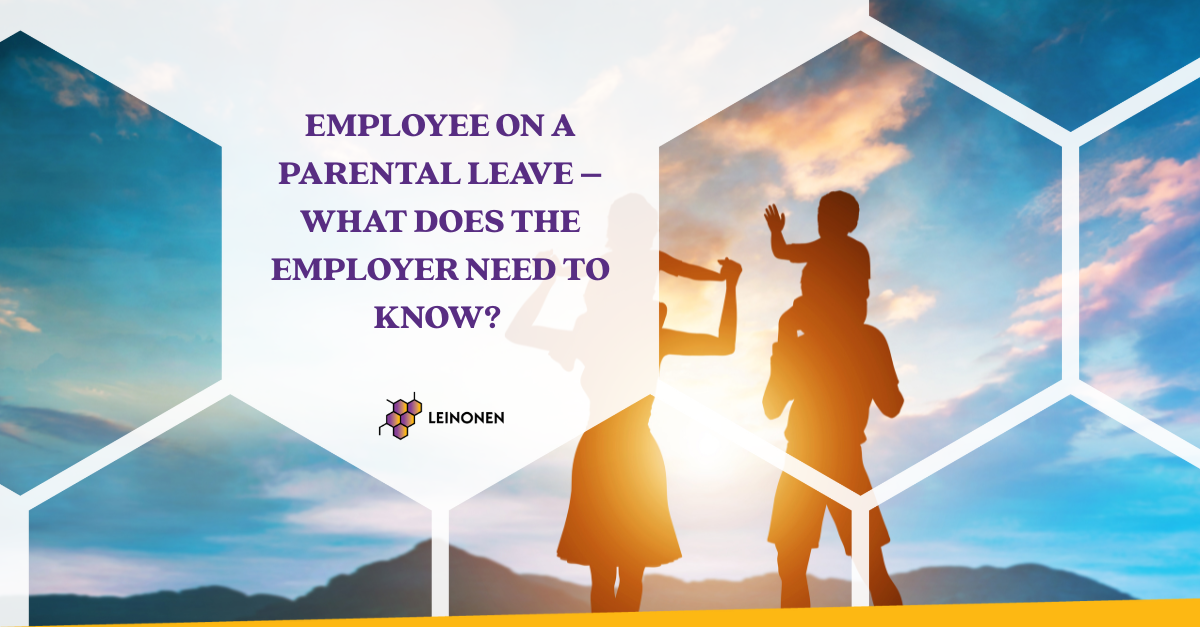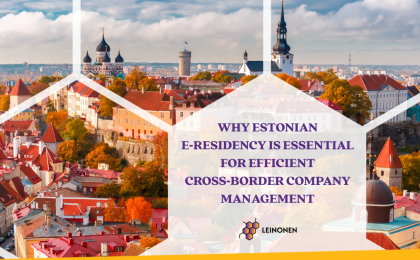In Estonia, the state tries to enable the employees to combine their work and private life as much as possible with different legal measures. One of these legal measures are specific types of long (30 days and longer) leaves meant in case of a birth or adoption of a new child/children for the employee. These are maternity/paternity leave, adoptive parent leave and parental leave. These leaves are not paid by the employer but by the state. These types of leaves can last weeks, months and years, so during this long period when the employee is „away “, the employer might forget that there is such a valid employment contract and does not take it into account when making important organisational decisions.
Therefore, when the employee wishes to come back after this long leave, the employer might need to make difficult decisions. For example, during the years of the employee’s absence, the employer has restructured the company structure, and the returning employee has basically no active position anymore. However, the employer needs to always consider the following:
- The employment contract of the employee on this leave remains still in force. The employment contract does not automatically change or expire because of that. NB! It is also forbidden to lay off an employee who uses maternity/paternity leave, adoptive parent leave and parental leave (except in cases of company bankruptcy or liquidation).
- The employee has the right to improved working conditions to which they would have been entitled during their absence. This means, for example, if the employer decided to raise the overall salary of every employee by 2%, the 2% raise applies to the absent employee as well.
- In case the employee returns from their leave and their child is still under 3 years old, the employee shall also get the following protection:
- In case of lay-off, they are the one entitled to stay compared to other employees working in the same position.
- In case of business trip, the employee must agree to the business trip (it is not a unilateral decision of the employer).
- In case of employment termination, the employer must prove and justify the legal grounds of termination (e.g. breach of employment contract), the law states that employment was terminated due to employee being pregnant or raising a child under 3 years of age (this is illegal).
Thus, we advise the employers to always consider the employment contracts of the absent employees when making organisational decisions and to consult with lawyers to avoid possible legal disputes. As pregnant employees and parents of children under 3 years of age are more protected by the law, it is way more likely that the labour dispute body shall rule against the employer.
Based on our practice, we also recommend employers to be more cautious when considering granting bonuses to employees on parental leave. Employees receive state-provided income during their leave, and there is a maximum monthly income threshold they must not exceed not affect their state-provided income. In 2025, the monthly limit is 2 632.55 EUR (gross).
As employers do not have access to the info whether the employee has any additional income during their leave, it is recommended for employers that they consult with their employees regarding the planned bonus payment beforehand. In case the employer pays the bonus, and because of the bonus payments the monthly limit is exceeded, the state shall start claiming payments back from the employee. To prevent misunderstandings and claims from the state, it is best to discuss potential bonus payments with the absent employee beforehand.
For more information or advice please contact us at tax-legal@leinonen.ee




